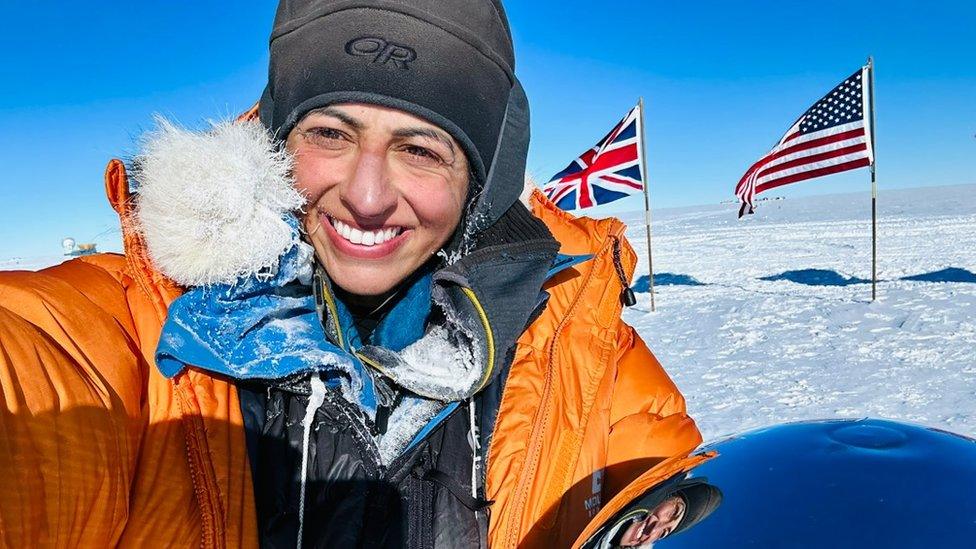Former Royal Marine takes on solo Antarctic record bid
- Published
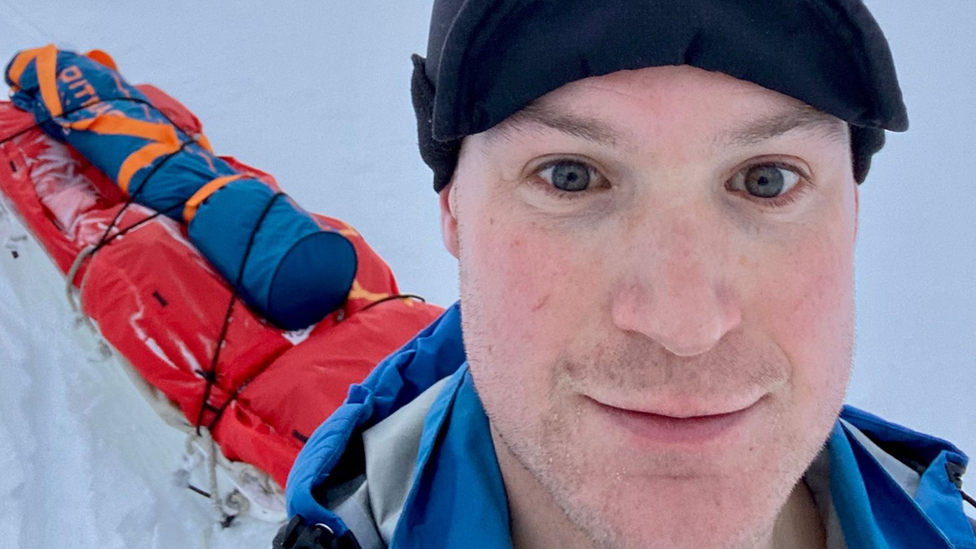
Sam Cox hopes to break the world record for the longest, solo, unsupported crossing of Antarctica
A former Royal Marine is hoping to complete a record-breaking solo unsupported crossing of Antarctica.
Sam Cox, from Torquay, will be skiing and dragging a sled containing his provisions for up to two months, and is set to begin in November.
As part of his preparations he has taken part in a scientific study with students at Plymouth Marjon University.
Some of the experiments took place in a -21C (-5.8F) chamber to replicate conditions he could face in Antarctica.
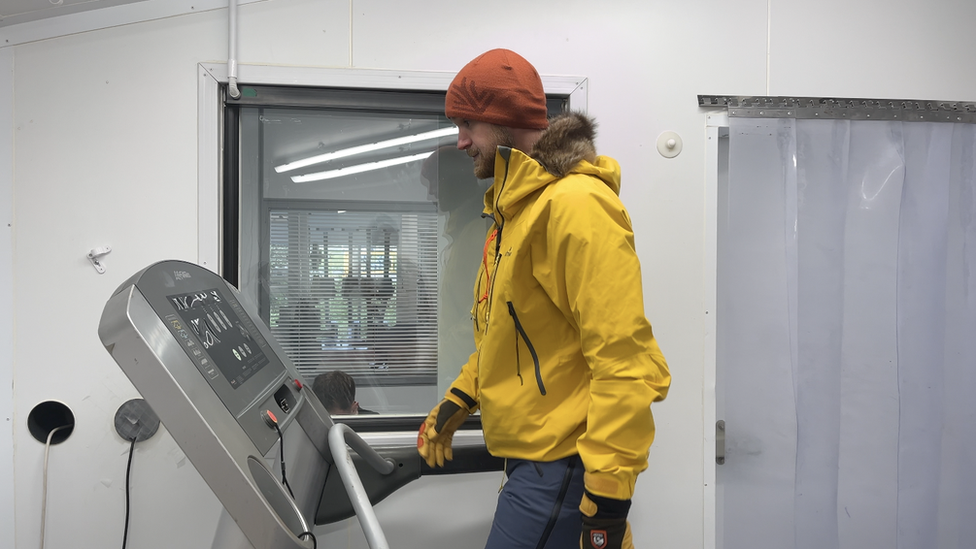
Sam Cox has spent time in a specialist chamber where conditions were set to replicate some of those he could face in Antarctica
"It reminds you to keep warm and shows you the effects of if you don't look after yourself, you can't look after yourself further," Mr Cox explained.
"It's going to be around -20C - some days will be warmer, some will be colder and of course there's the wind chill."
He is expected to cover more than 1,200 miles (2,000 km) of unforgiving Antarctic tundra with ambition to break the existing world record by more than 310 miles (500 km).
'Never been done'
Mr Cox's team said the route had never been attempted before and would be longer in distance than any solo unsupported Antarctic expedition in history.
Captain Preet Chandhi set the current world record for the longest solo unsupported crossing of Antarctica in January.
During the expedition, she covered 922 miles (1,485km) in 70 days and 16 hours, enduring difficult conditions.
Mr Cox will start his expedition at the coast of Berkner Island and finish at the base of the Reedy glacier on the Ross ice shelf, via the South Pole.
He aims to arrive at the South Pole by New Year's Eve and complete the expedition by mid-January.
He will be dragging all the supplies he needs in a specially designed sledge weighing 25 stone (160kg).
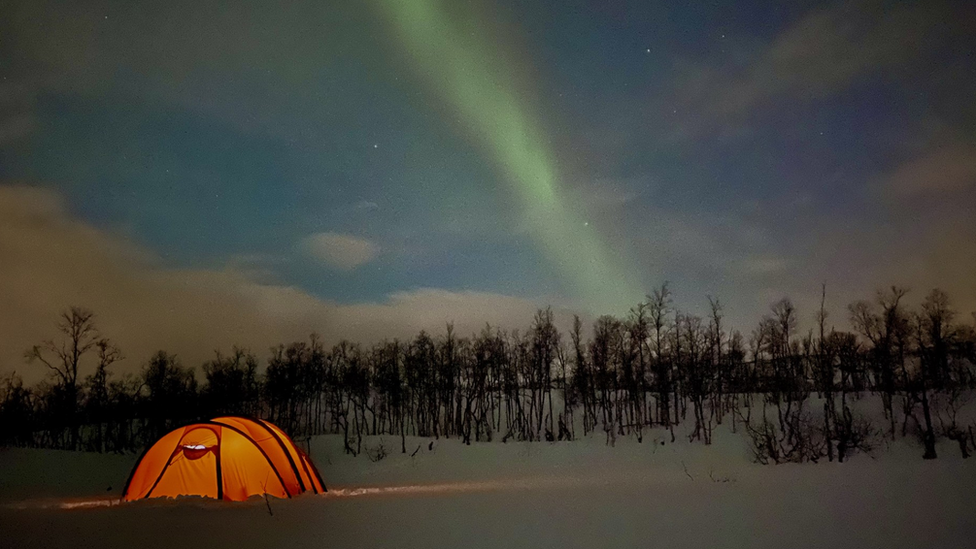
Sam Cox has been training for the expedition in northern Norway and Sweden
Mr Cox said he would need to eat about 7,000 calories a day to sustain himself, mostly surviving on a high fat diet.
To achieve the unsupported record, he cannot take any form of assistance and must turn down any offer of help from fellow explorers he may meet during the journey.
"It means I am by myself and I am taking everything from the very beginning to the moment I finish", he said.
The only link with the outside world is a beacon plotting his location in case of emergency, and limited communications via satellite phone.
He said: "The opportunities for scientific research in Antarctica are limited, so this expedition is a chance for me to help with some really rare research.
"I'll be taking part in studies that have never been done for this long in Antarctica."
Mr Cox left the Royal Marines in June after 13 years, having served in Iraq and Afghanistan.

How does cold affect the body?
"I was invited to join Sam in the chamber to see for myself how cold can affect the body and mind.
"To acclimatise, we spent 15 minutes 'getting cold', sitting still in what felt like a walk-in freezer.
"The temperature reading was -21C and to make it more realistic, fans were brought in to provide 'wind chill'.
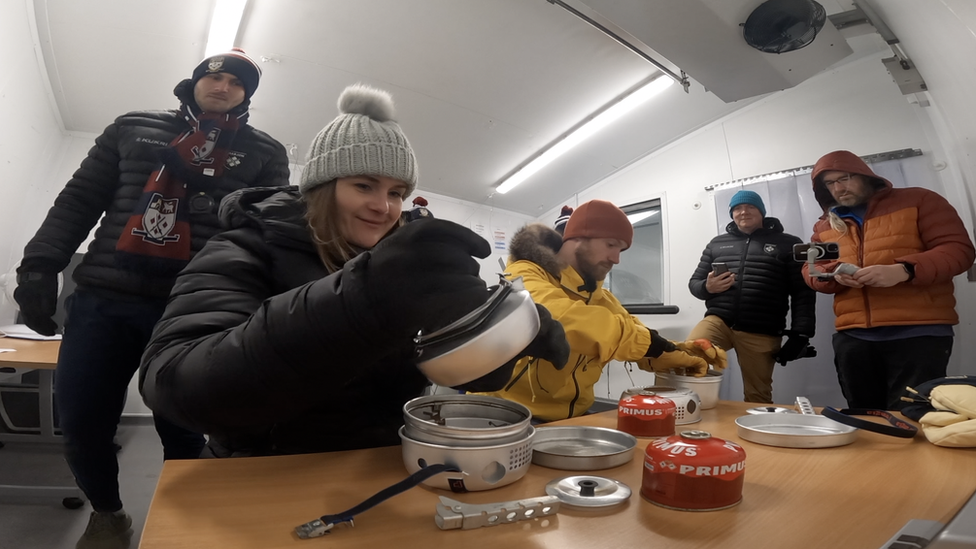
Rebecca Ricks and Sam Cox assemble stoves in a -21C climate chamber
"My torso, arms and legs seemed to cope pretty well but the tips of my fingers, as expected, were the problem.
"Now shivering, we were asked to assemble a stove and take it apart again.
"I became stuck right at the end of the task, trying to feed a tape through a clip. The frustration was hitting hard.
"To assemble the stove in room temperature took me 147 seconds. Add in the cold and a pair of gloves, it took me 262 seconds.
"For comparison, Sam completed the task in 144 seconds in the cold, which was a few seconds faster than he did it at room temperature.
"Next time I am facing -21c? Keep moving and keep eating.
"Observing us, Dr Joe Layden from Plymouth Marjon University, said: "When things start to go wrong that's when we can make mistakes.
"Once core temperature starts to drop, we lose coordination, focus, you increase the risk of muscle injuries. It's being able to keep moving and keep enough energy to keep moving."

Follow BBC News South West on Twitter, external, Facebook, external and Instagram, external. Send your story ideas to spotlight@bbc.co.uk, external.
- Published21 February 2023
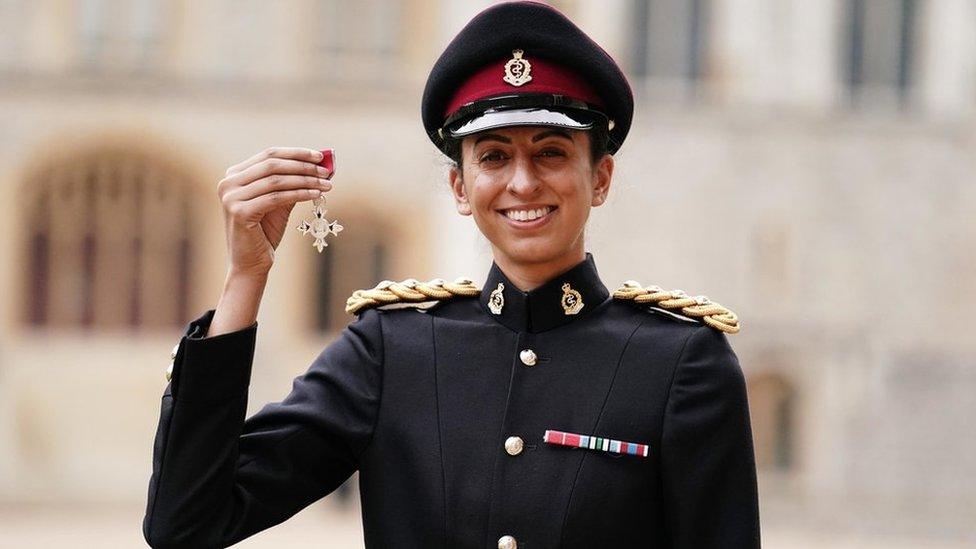
- Published31 January 2023
